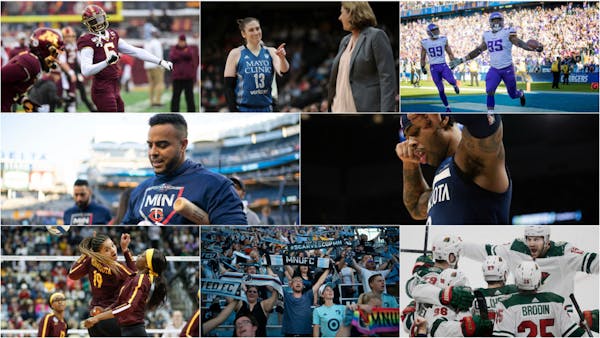Major League Baseball owners and the MLB Players Association have taken turns proposing ways to start the 2020 season — only for those proposals to be launched into oblivion by the other side like a hanging breaking ball.
Owners claim they will lose hundreds of thousands of dollars each game — one report had it over $600,000 — by playing in stadiums this season without fans, something the union finds hard to believe. The apparent mistrust between the sides has fueled speculation about the possible cancellation of the 2020 season.
Not so fast.
MLB Commissioner Rob Manfred might implement a 50-game schedule — less than one-third of the standard 162-game schedule — in which the players would receive their salaries pro rata. It's not the 114-game schedule the players association proposed Sunday, but it's the pay scale they seek.
Perhaps it is the worst-case scenario. Perhaps the sides can negotiate for a few more games. But it's something to work with, and it is a possible path to playing baseball.
"I can tell you that as of [Tuesday], I am more optimistic about playing this season as I have been over the last couple of weeks," Twins President Dave St. Peter said. "I know there's a lot of media reporting and speculation [otherwise], but I think the reality of it is that the situation is a little closer to resolution than most people believe. I truly believe that.
"I think it is rooted in the reality that owners and players ultimately want to play. I think they want to find a bridge, come together. I know that's the case with the owners and I know that's the case of our players. I can't speak for the other 29 clubs."
The sides have been battling since late March, when they agreed to an altered salary structure as the coronavirus outbreak upended sports leagues worldwide. But the players and owners ended up disagreeing about the agreement. Owners claimed they could renegotiate a deal for a season with no fans allowed in stadiums; the union felt the March agreement was ironclad.
The league floated a 50-50 revenue split, which the union balked at. Last week, owners proposed an 82-game schedule and a sliding pay scale in which the highest-paid players would take a 75% pay cut. The fact that Manfred and other MLB staffers were taking only 35% pay cuts was not lost on players as they balked at that plan. Then the players suggested over the weekend a 114-game season with prorated salaries. That led to the league threatening a 50-game schedule.
"I think there are also some benefits to shorter versus longer that allows us to get out on the diamond and play in a safe manner, and hopefully for over an entire season," St. Peter said. "Getting derailed on the start/stop scenario is the worst-case scenario. You're trying to thread a needle in getting a baseball season in before a second surge of this virus which we believe is a very real possibility."
The health concerns of the players are issues that can be resolved, St. Peter said.
As other sports craft plans to complete their seasons, the return of baseball has been viewed by many as potentially a big step in the nation's emergence from the pandemic. But now the country needs healing in another way.
The Twins participated in Blackout Tuesday, a movement that originated in the music industry but has expanded as a way to mourn the May 25 death of George Floyd while pushing for social justice change and reflecting on ways the black community can move forward.
On Tuesday, the Twins tweeted a picture of a black square and even changed their avatar to a Twins cap with a black background, along with the message "Black Lives Matter."
St. Peter said he feels baseball can be part of the emergence from a tumultuous period in history.
"There's an appetite to make a deal, to come together and recognize that this is an opportunity," St. Peter said.
"Baseball historically has found ways to help our country recover from national emergencies.
''I do believe that is not just a historical fact, but a narrative that matters to players and owners.
"The events of the last week help reinforce how baseball can bring communities together. We have an opportunity here."







